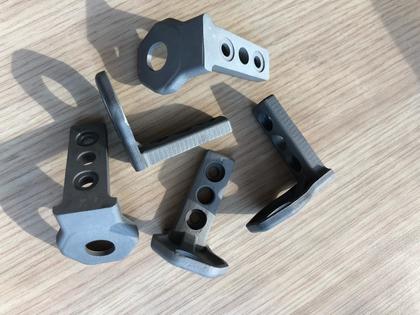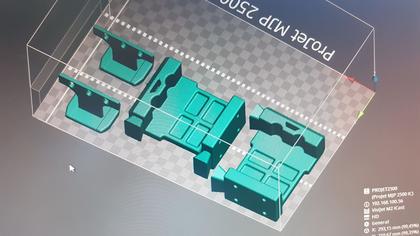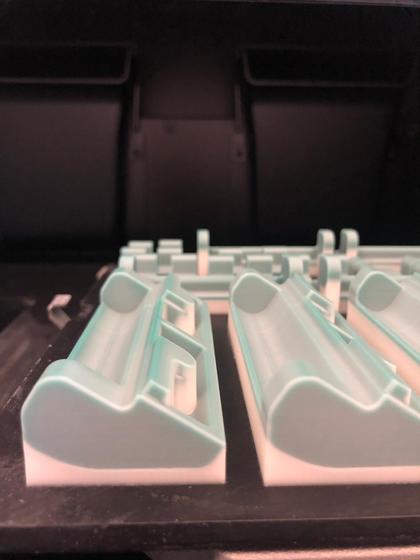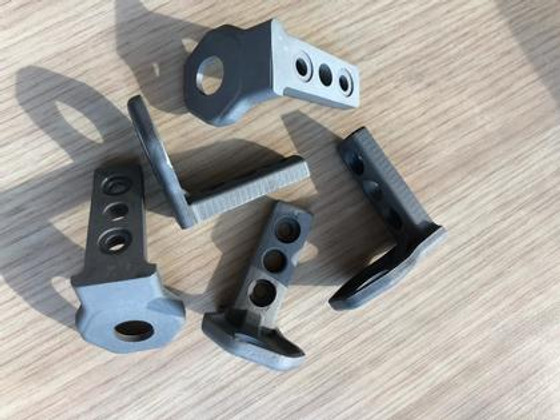Foundry Saves Time, Advances Wax Pattern Aesthetics with Wax 3D Printing
Posted by 3D Systems Inc on 18th Nov 2019

Established in 1993, Microfound is the Italian leader in precision lost wax casting in the mechanical sector. Based in Barco, Italy, the foundry works with customers across industries and emphasises innovation and technological evolution in its delivery of steel and special alloy parts. Constantly in search of ways to elevate its processes, efficiency and service, Microfound invested in 3D Systems’ wax 3D printing technology to combat the time and cost challenges that are common within the foundry environment.
Since its purchase of 3D Systems ProJet® MJP 2500 IC wax 3D printer, Microfound has increased its overall competitiveness and accelerated its ability to produce high quality prototypes and pre-production series wax patterns.
A 3D printing solution for investment casting
As Microfound researched available 3D printing technologies for the foundry environment, it consulted with many companies to study its options. After speaking with 3DZ, a 3D Systems reseller, 3D Systems stood out due to the comprehensiveness of its offering and track record for performance. “3D Systems offered a product that fit well into our production process, and also offered us the security of advanced technology that had already been tested,” said Microfound CEO Marco Bigliardi.
3D Systems’ digital foundry solution is comprised of the investment casting wax 3D printer (part of the company’s MultiJet Printing (MJP) line) and VisiJet wax material, as well as 3D Sprint® software, which is included with 3D Systems’ printers. 3D Sprint is an all-in-one additive manufacturing software that facilitates the file preparation, optimization, and printing process. Carefully developed with the end-user in mind, this combination of tools enables investment casting foundries to smoothly transition a digital design to a cast part without intermediate tooling.
Prior to purchasing the ProJet MJP 2500 IC, Microfound outsourced this process to a firm that used an alternative 3D printing technology to create molds for wax pattern pouring. Since bringing on wax 3D printing, Microfound has been able to shrink its pattern turnaround time by multiple days, while achieving superior surface finish and details. 3D Systems’ VisiJet® M2 ICast material is 100% RealWax and seamlessly integrates into Microfound’s investment casting process: “3D Systems’ printer and material offer maximum compatibility with our melting process, which has significantly reduced the time it takes for us to achieve a final cast part,” says Bigliardi.
Microfound reports 3D Sprint® software is intuitive and easy-to-use.

High quality prints with high ease of use
In addition to accelerating pattern production times, 3D Systems’ digital foundry solution has improved final part quality. “We have definitely noticed aesthetic improvements to the surface quality of particular products, and we are having great success with precision parts as well,” Bigliardi says.
3D Systems’ MJP technology and VisiJet RealWax material deliver industrial casting patterns that hold tight tolerances and are ideal for manufacturing complex precision metal components with reduced or no finishing work. Beyond helping Microfound improve and accelerate its prototyping service, the print quality of the ProJet MJP 2500 IC is also helping the foundry increase its ability to supply pre-production series and products, especially in small to medium batches, that are equivalent to series production parts.
Microfound reports a seamless adoption of 3D Systems’ digital foundry solution. “The printer is very easy to use,” Bigliardi says. Combined with the intuitive interface of 3D Sprint software, the process of optimizing individual parts and builds is straightforward and enables more parts to be printed, in less time and with higher quality. This is possible through 3D Sprint’s ability to analyze and optimize the placement of support structures on parts and ensure the best placement of parts within the build platform. “We like 3D Sprint because it is a very intuitive and easy-to-use software,” says Bigliardi.
A fundamental workflow advantage
Since bringing on 3D Systems’ digital foundry solutions, Microfound is now faster and more competitive in its offering of prototyping services and can offer more and faster pre-production series parts. “For us, the ProJet MJP 2500 IC has enabled us to be more productive and to diversify our offerings,” says Bigliardi. “The ability to create high quality lost wax castings without building a mold is a great advantage, and has quickly become a fundamental part of our operations.”


